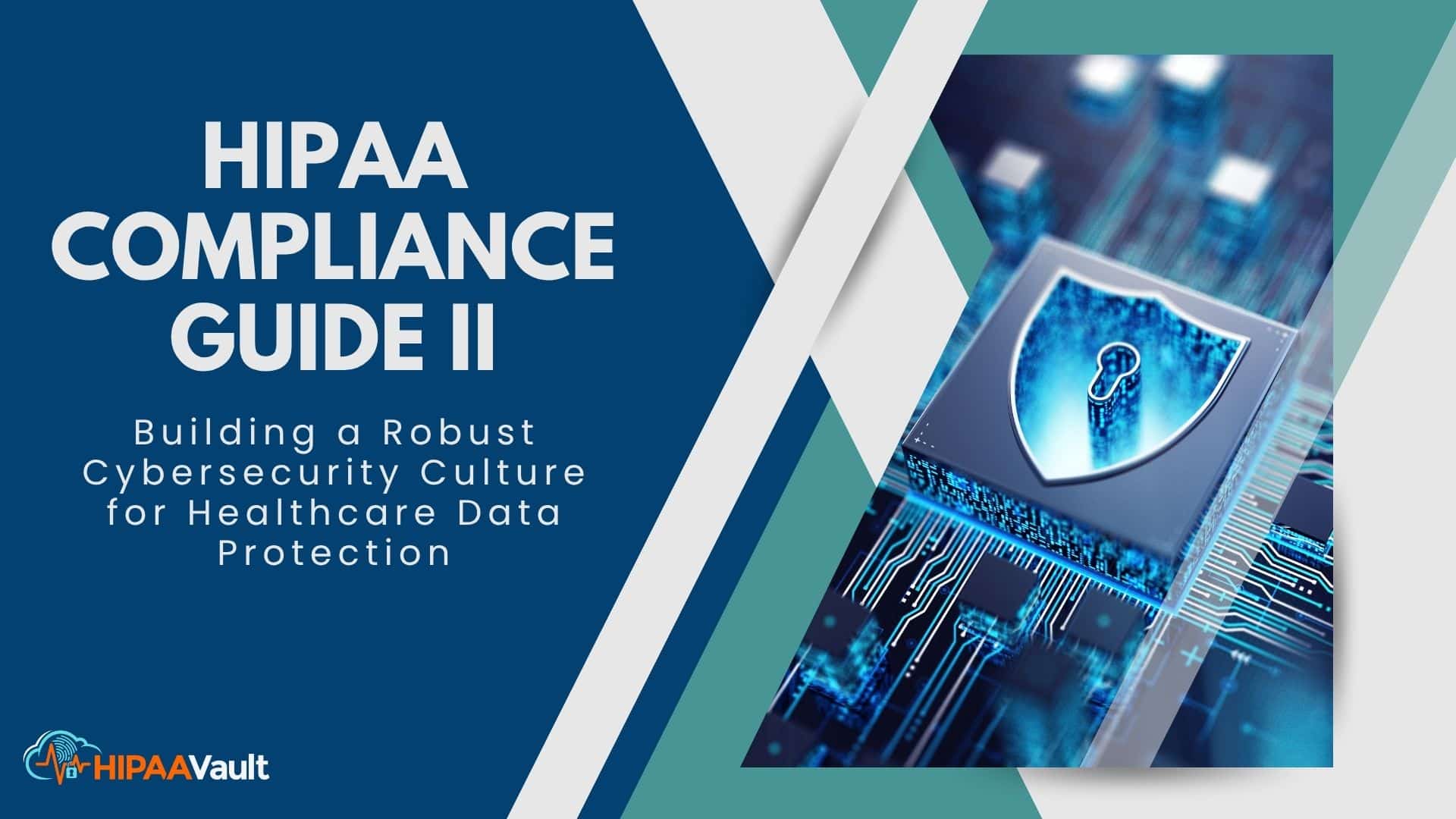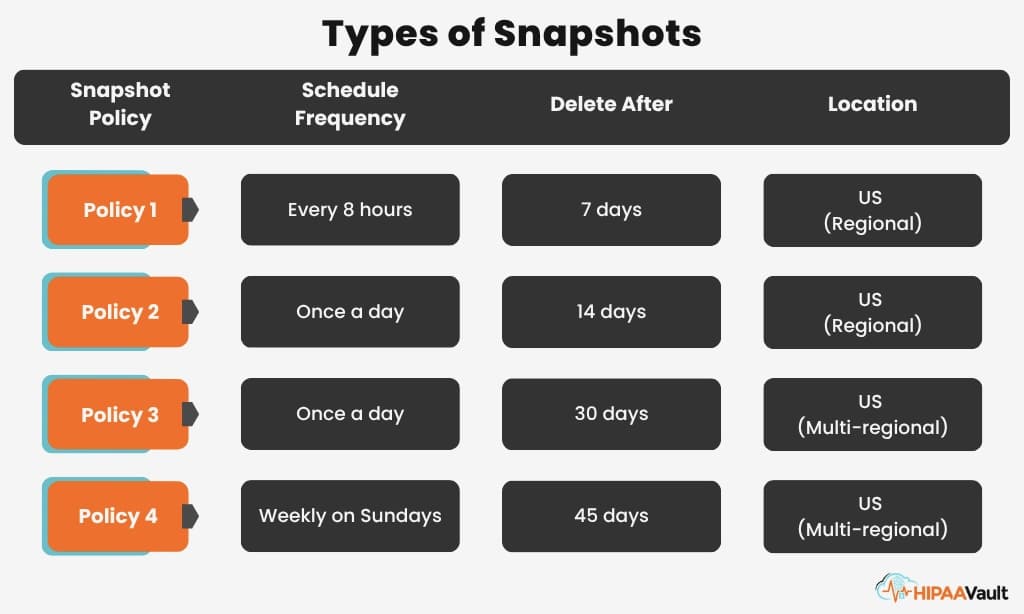How healthcare providers and hosting vendors can foster a security-first culture to protect PHI and achieve HIPAA compliance.
HIPAA Cybersecurity Culture in 2025
When it comes to HIPAA compliance, cybersecurity culture is just as important as contracts.
Every healthcare provider, cloud hosting company, and software vendor that touches Protected Health Information (PHI) must go beyond paperwork — they must build a security-first mindset.
Without it, even the best Business Associate Agreements (BAAs) won’t prevent breaches, fines, or reputational damage.
👉 In HIPAA Compliance Guide I: The 10 Essential Components of a Business Associate Agreement (BAA), we explained why BAAs are the legal backbone of compliance.
In this HIPAA Compliance Guide II, we’ll explain:
- Why cybersecurity culture matters for HIPAA.
- The 7 pillars every organization needs.
- How to implement, measure, and maintain a culture that protects PHI.
👉 Need a HIPAA-compliant hosting partner that combines culture with technology? HIPAA Vault’s HIPAA hosting services include signed BAAs, 24/7 monitoring, and managed security.
Why Cybersecurity Culture Matters for HIPAA Compliance
HIPAA’s Security Rule (HHS.gov) requires:
- Administrative safeguards.
- Physical safeguards.
- Technical safeguards.
But technology alone isn’t enough. Culture turns compliance into practice.
📊 Key statistics:
- The average cost of a healthcare data breach reached $10.93 million in 2023 (IBM Data Breach Report).
- Phishing accounts for 36% of healthcare breaches (HIPAA Journal).
- Ransomware hit 25% of healthcare organizations in 2022, with nearly half paying ransoms to recover data.
Without a workforce that is aware, trained, and accountable, these risks will continue to rise.
7 Pillars of a HIPAA-Compliant Cybersecurity Culture
1. Leadership Commitment & Governance
- HIPAA compliance starts at the top.
- Executives and boards must model security-first behavior.
- Create a governance committee with compliance, IT, and operations.
- Appoint a HIPAA Security Officer to oversee programs.
👉 At HIPAA Vault, our experts serve as an extension of your team to provide governance support.
2. Policies, Procedures & Documentation
- Develop written HIPAA policies on access, device use, and incident response.
- Review policies annually or when technology changes.
- Maintain documentation for at least six years, per HIPAA rules.
📌 For structure, see the NIST Cybersecurity Framework.
3. Workforce Awareness & Training
- Provide role-based HIPAA training (IT, clinical, admin).
- Run phishing simulations and regular security quizzes.
- Encourage staff to report suspicious activity without fear.
💡 Training should happen within 90 days of hire and refresh at least annually.
4. Access Control & Least Privilege
- Restrict PHI access to those who need it.
- Require multi-factor authentication (MFA) for all PHI systems.
- Regularly review accounts and revoke unused access.
👉 With HIPAA Vault’s cloud hosting, MFA and access monitoring come standard.
5. Technical Safeguards
- Encryption for PHI at rest and in transit.
- SIEM monitoring for real-time threat detection.
- Patch management to keep systems updated.
- Network segmentation to isolate PHI from general systems.
📖 The HHS 405(d) Cybersecurity Practices recommend these safeguards as essential defenses.
6. Incident Response & Recovery
- Create a breach response plan that defines detection, containment, and notification.
- HIPAA requires reporting breaches within 60 days.
- Test backups and incident drills annually.
💡 83% of organizations that paid ransomware still failed to recover all data (IBM). Backups matter more than ransoms.
7. Continuous Monitoring & Improvement
- Perform risk assessments per HIPAA §164.308(a)(1)(ii).
- Track metrics: phishing success rates, policy violations, incident response times.
- Use third-party audits annually to validate compliance.
- Benchmark against HICP guidelines.
Implementation Roadmap
Follow these steps to build your cybersecurity culture:
- Conduct a baseline risk assessment.
- Secure executive buy-in.
- Appoint a HIPAA Security Officer.
- Roll out policies and training.
- Deploy MFA, SIEM, and encryption.
- Run awareness campaigns.
- Test your incident response plan.
- Audit, measure, and improve quarterly.
Customize Your HIPAA Bundle—Pick 3 and Save 15%
Don't pay for tools you don't use. Combine Hosting, Email, Fax, or Text into one affordable, managed plan.
Learn MoreProtecting PHI with HIPAA-Compliant Hosting
Culture needs a foundation — and that foundation is secure infrastructure.
Features of HIPAA-compliant hosting include:
- Signed BAA.
- Encryption for PHI.
- SIEM & intrusion detection.
- MFA and access logging.
- 24/7 HIPAA-trained support.
👉 HIPAA Vault’s HIPAA hosting provides all these safeguards by default.
Key Takeaways
- Cybersecurity culture is compliance in practice.
- The 7 pillars — leadership, policies, training, access control, safeguards, incident response, and monitoring — form the foundation of HIPAA security.
- Without culture, technical tools are ineffective.
- Partnering with a HIPAA-compliant host like HIPAA Vault provides the infrastructure to support your culture.
HIPAA Penetration Testing—Go Beyond Automated Scans
Validate your security with an objective, third-party audit. We simulate real cyberattacks to uncover vulnerabilities and provide a comprehensive compliance report.
Learn MoreFAQs
At HIPAA Vault, we know that compliance isn’t optional — it’s essential.
That’s why every hosting plan includes:
- A signed BAA.
- 24/7/365 managed security.
- Expert support from HIPAA specialists.
👉 Ready to secure your PHI with confidence?
Explore our HIPAA Hosting Plans or contact us today.








